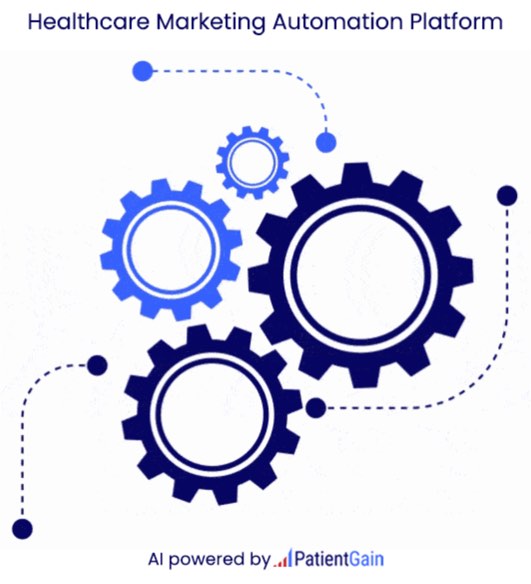Why is patient consent required for any healthcare practice marketing website?
Patient consent is crucial for any healthcare practice marketing website because healthcare providers are responsible for protecting sensitive patient information and ensuring compliance with a variety of legal and ethical guidelines. The need for patient consent is driven by several key factors, particularly around privacy, data protection, and the regulations governing medical marketing.
Why patient consent is required – even when a patient sends a message or appointment from your healthcare website?
1. Compliance with HIPAA (Health Insurance Portability and Accountability Act)
- HIPAA is a U.S. law designed to protect patients’ personal health information (PHI). Healthcare practices must ensure that any use of patient data for marketing purposes complies with HIPAA regulations, which require explicit patient consent before their health information can be used.
- Example: If a healthcare practice wants to feature patient testimonials, before-and-after photos, or case studies, written consent must be obtained from the patient. This consent protects both the patient’s privacy and the healthcare provider’s compliance with the law.
2. Protection of Sensitive Health Data
- Healthcare practices often collect and store sensitive health data such as medical history, treatment plans, diagnoses, and personal identifiers. Using this data for marketing without the patient’s informed consent can lead to serious privacy violations.
- Example: Using a patient’s medical records or treatment details in a promotional email or on a website without their permission would be a breach of privacy.
3. Avoiding False or Misleading Advertising
- When healthcare practices use before-and-after photos, testimonials, or clinical results in their marketing materials, it’s critical that the content is truthful and accurately reflects patient experiences. Patient consent ensures that the content is authentic and accurate.
- Example: A medical spa practice using photos of patients who underwent a skin treatment must have those patients’ written consent to ensure the images are not misleading and the results are accurately represented.
4. Building Trust and Credibility
- Obtaining patient consent for marketing purposes is not just a legal requirement but also an ethical consideration. Transparent communication and obtaining consent for marketing efforts enhance the trust between the practice and its patients.
- Example: A practice that asks for consent before using a patient’s image or testimonial for a promotional video or social media post shows respect for patient privacy, which can positively impact its reputation.
5. Social Media and Marketing Campaigns
- Healthcare practices often use social media, email marketing, or advertisements to attract new patients. If these campaigns involve patient images, stories, or reviews, explicit consent is required to use their content legally.
- Example: If a patient posts about a positive experience on a practice’s social media page, the practice must obtain explicit consent to share that post or use it in advertising.
6. Legal and Financial Repercussions
- Failure to obtain proper consent for using patient information in marketing could result in legal actions, fines, or even the loss of medical licenses due to violations of privacy laws and regulations such as HIPAA.
- Example: If a healthcare provider uses patient data for marketing without consent, they could face hefty penalties from the U.S. Department of Health and Human Services (HHS) for violating HIPAA.
7. Ethical Considerations
- Ethical marketing practices in healthcare not only protect patient rights but also demonstrate a commitment to honesty and transparency. Using patient information for marketing without proper consent could be considered exploitative.
- Example: Using a patient’s story in an advertisement for a weight loss treatment without their explicit consent could be seen as an ethical violation, potentially causing harm to the patient-provider relationship.
8. Ensuring Compliance with State and Local Laws
- Beyond HIPAA, each state may have specific laws and regulations governing the use of patient data for marketing purposes. Some states may have stricter requirements for patient consent, especially regarding the use of images, videos, or medical testimonials.
- Example: In California, healthcare providers must comply with the California Consumer Privacy Act (CCPA), which grants individuals more control over how their data is used, including for marketing purposes. Consent must be obtained before using data for promotional activities.
9. Marketing to Minors
- If a healthcare practice markets services to minors (e.g., pediatric care or treatments for adolescent acne), special consideration is required. Parental consent must be obtained for any marketing material featuring minors.
- Example: A pediatric practice that shares videos of children receiving treatment or testimonials from minors would need to obtain parental consent, as minors cannot provide legally binding consent on their own.
How to Obtain Patient Consent
- Written Consent Forms: These can be signed during or after a visit to the practice, indicating permission for marketing use.
- Digital Consent: For websites or online campaigns, digital forms (checkboxes or online signatures) can be used to gather consent. However, as a website provider or the practice provider, owner of the website, you must store time stamp, IP address and other useful information in secure HIPAA compliant database as a proof that certain person (patient) has provided you consent. If you have a HIPAA audit, you will be required to produce evidence of when and how the specific person (patient) has provided you consent.
- Social Media Consent: Written or digital consent must be obtained before sharing patient posts or reviews on social media platforms. Be extremely careful with using any type of social media platform for medical or dental marketing. Most of the social media platforms are not HIPAA compliant, and they track user’s IP addresses and other demographics which, if used together constitutes PHI. And PHI cannot be stored on a non-HIPAA compliant platform, like Meta.
Conclusion
Patient consent is essential in healthcare marketing to ensure legal compliance, ethical practices, and the protection of patient privacy. It fosters trust between the practice and patients and helps avoid any potential legal consequences from improperly using patient data. By obtaining proper consent, healthcare providers can safely use marketing strategies to promote their services while respecting patient rights.
Contact PatientGain to see if PLATINUM service can help your medical or dental practice.


